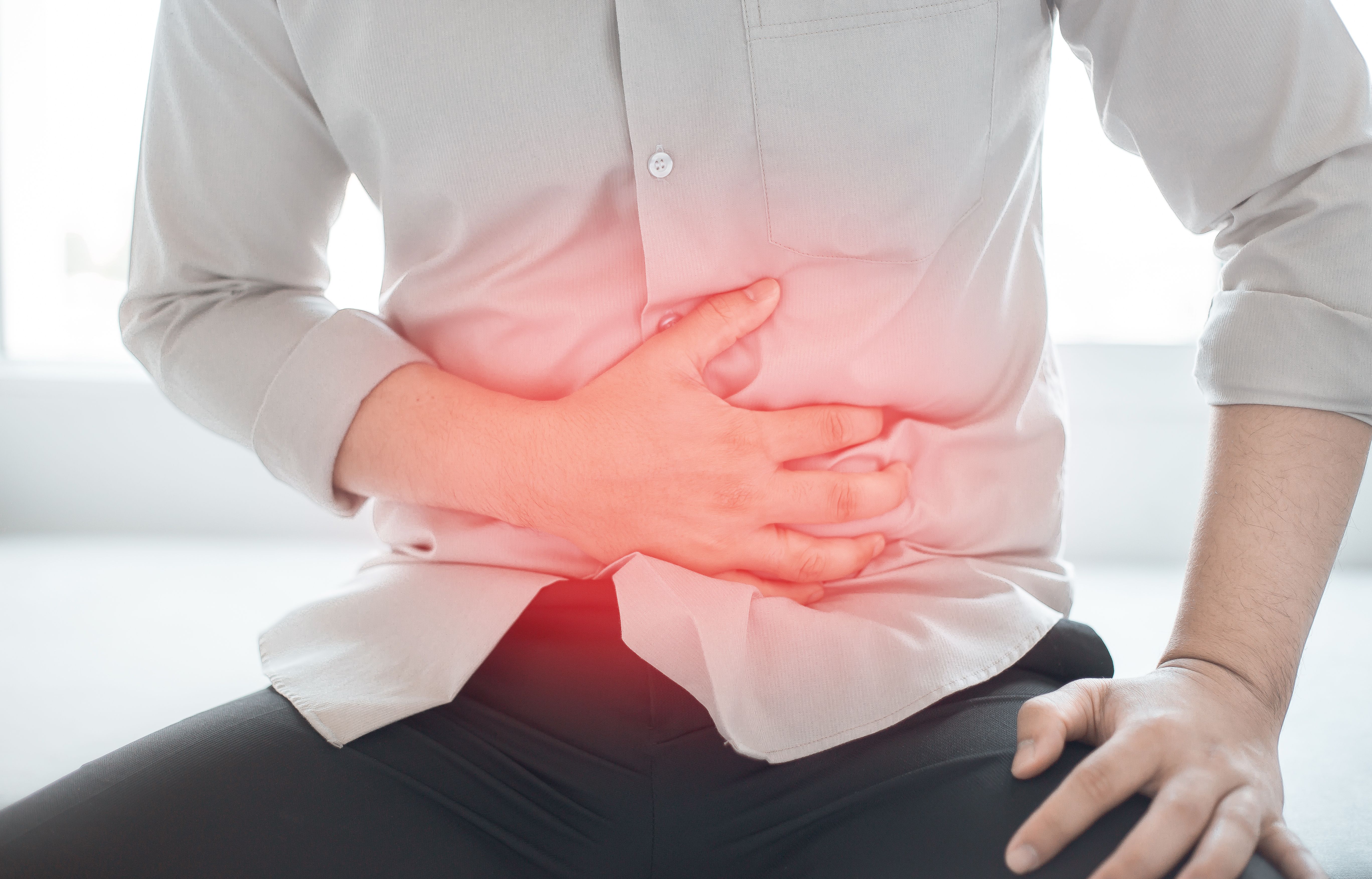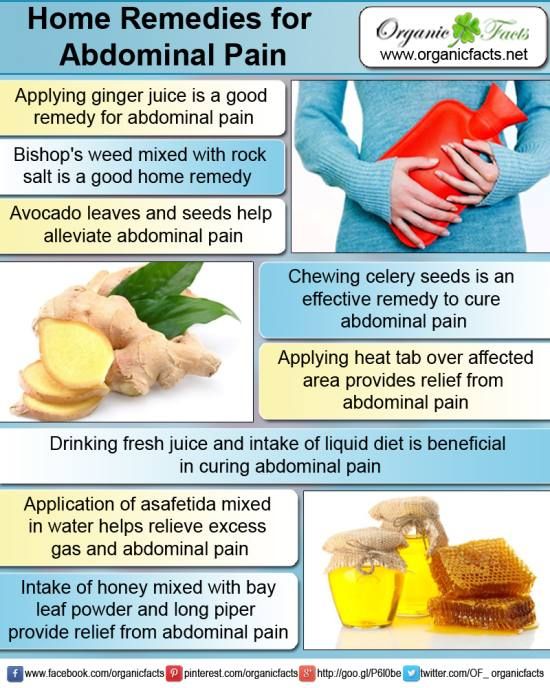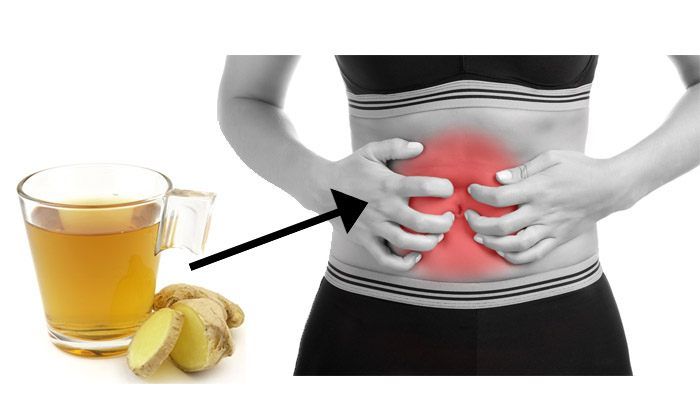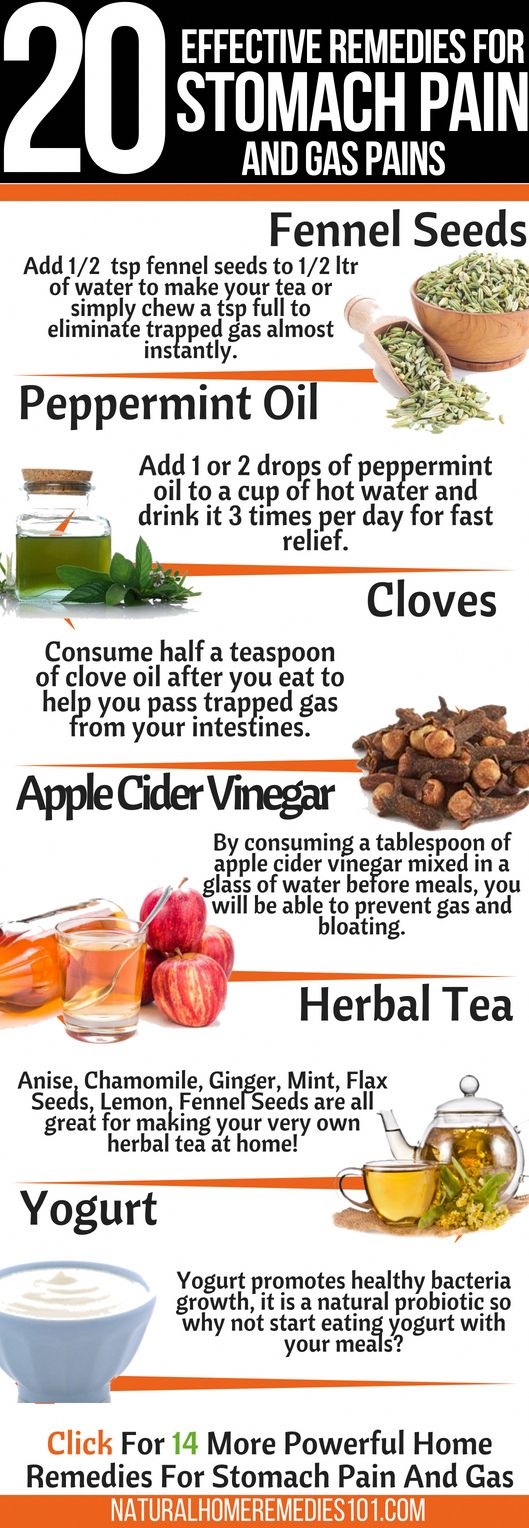Home remedy for stomach gas and bloating. Effective Home Remedies for Stomach Gas and Bloating: Find Quick Relief
What are the most effective home remedies for stomach gas and bloating. How can you find quick relief from abdominal discomfort caused by trapped gas. Which natural treatments and over-the-counter options work best for gas pain.
Understanding Stomach Gas and Bloating: Causes and Symptoms
Excess gas in the stomach and intestines can cause significant discomfort, ranging from a dull ache to sharp, stabbing pains. While gas is a normal part of digestion, problems arise when it becomes trapped in the gastrointestinal tract. This can lead to bloating, cramping, and even severe pain that may prompt emergency room visits in some cases.
Common causes of gas and bloating include:
- Eating too quickly
- Consuming gas-producing foods
- Swallowing air while eating or drinking
- Digestive enzyme deficiencies
- Food intolerances
- Certain medical conditions
Can specific foods trigger gas and bloating more than others? Indeed, some foods are known to be more gas-producing. These include beans, lentils, broccoli, cabbage, and dairy products (especially for those with lactose intolerance). However, if you experience frequent gas and bloating even when avoiding these foods, it may indicate an underlying digestive issue that requires medical attention.

Natural Home Remedies to Alleviate Gas Pain
Fortunately, several home remedies can provide relief from gas pain and bloating. These natural treatments are often effective and easily accessible.
Movement and Exercise
How can simple movement help relieve gas pain? Walking after meals or when experiencing discomfort can help move gas through the digestive system more efficiently. This gentle exercise stimulates peristalsis, the natural contractions of the digestive tract that propel food and gas along.
Abdominal Massage Techniques
Gentle massage can be an effective way to encourage trapped gas to move through the GI tract. Here’s a simple technique you can try:
- Lie down on your back in a comfortable position.
- Start on the right side of your stomach, near the pelvis bone.
- Using circular clockwise motions, gently massage upward along the right side until you reach the ribs.
- Move to the left side and continue the circular massage from the left ribs down to the hip bone.
- From there, massage upward toward the belly button.
- Spend about one minute on each area, repeating the process for up to 10 minutes.
Yoga Poses for Gas Relief
Certain yoga poses can help stretch the body and facilitate the movement of gas through the digestive system. A simple yet effective pose is the knees-to-chest pose:

- Lie on your back with your feet together.
- Raise your legs straight up, then bend your knees.
- Wrap your arms around your knees, drawing them into your chest.
- Lift your head to touch your knees.
- Hold the pose for 20 seconds or longer, repeating as needed.
Alternatively, lying on your left side with your knees curled into your chest can also encourage gas to move through the GI tract more easily.
Herbal Remedies and Teas for Gas Relief
Various herbs and teas have been traditionally used to alleviate gas and bloating. These natural remedies can be both soothing and effective.
Beneficial Teas for Digestive Health
Which teas are most effective for relieving gas and bloating? Several herbal teas have been found to be particularly helpful:
- Peppermint tea
- Chamomile tea
- Fennel tea
- Ginger tea
These warm beverages can help relax the digestive tract and reduce gas production. It’s important to note that carbonated beverages should be avoided when experiencing gas pains, as they can exacerbate the problem.

Herbal Spices for Gas Relief
Many common kitchen spices have carminative properties, meaning they can help reduce gas and bloating. Try mixing one of the following spices into a glass of warm water and drinking it:
- Fennel seeds
- Turmeric
- Anise
- Caraway
- Coriander
These spices can help stimulate digestion and reduce gas formation in the intestines.
Over-the-Counter Solutions for Trapped Gas
When home remedies don’t provide sufficient relief, over-the-counter (OTC) options can be effective in treating gas and bloating.
Enzyme Preparations
Enzyme preparations can be particularly helpful if gas pains are caused by difficulties in breaking down certain foods. For instance, lactose intolerance is a common source of gas and bloating. OTC products that can help provide relief include:
- Dairy Relief
- Digest Dairy Plus
- Lactaid
For those who experience gas after consuming legumes or beans, alpha-galactosidase supplements like Beano can be effective in preventing gas formation.
Adsorbent Medications
How do adsorbent medications work to relieve gas? These medications work by breaking up gas bubbles, allowing them to pass more easily through the digestive system. Simethicone is a popular active ingredient in many OTC gas remedies, including:

- Alka-Seltzer Anti-Gas
- Gas-X
- Mylanta Gas
Preventing Gas and Bloating: Dietary and Lifestyle Changes
While treating gas symptoms is important, preventing their occurrence in the first place can significantly improve quality of life. Several dietary and lifestyle changes can help reduce the frequency and severity of gas and bloating.
Mindful Eating Practices
How you eat can be just as important as what you eat when it comes to preventing gas. Consider the following tips:
- Chew your food thoroughly to aid digestion
- Eat slowly to reduce the amount of air swallowed during meals
- Avoid talking while eating, which can lead to air swallowing
- Sit upright while eating to promote better digestion
Identifying and Avoiding Trigger Foods
While some foods are known to cause gas in many people, individual tolerances can vary. Keeping a food diary can help you identify which foods tend to trigger gas and bloating for you personally. Common gas-producing foods include:
- Beans and lentils
- Cruciferous vegetables like broccoli and cabbage
- Dairy products (for those with lactose intolerance)
- Carbonated beverages
- Artificial sweeteners
Once you’ve identified your trigger foods, you can choose to avoid them or consume them in smaller quantities.

When to Seek Medical Attention for Gas and Bloating
While occasional gas and bloating are normal, persistent or severe symptoms may indicate an underlying health issue that requires medical attention. When should you consult a healthcare professional about your gas symptoms?
- If gas pain is severe or persistent
- If you experience unexplained weight loss
- If you notice blood in your stool
- If gas is accompanied by persistent changes in bowel habits
- If you have a family history of colon cancer or other gastrointestinal diseases
These symptoms could indicate more serious conditions such as inflammatory bowel disease, celiac disease, or even certain types of cancer. A healthcare provider can perform necessary tests and provide an accurate diagnosis.
Exploring the Connection Between Stress and Digestive Issues
The link between stress and digestive health is well-established. How does stress contribute to gas and bloating? Stress can affect digestion in several ways:
- Altering gut motility
- Increasing inflammation in the digestive tract
- Changing the gut microbiome
- Affecting eating habits and food choices
Managing stress through techniques such as meditation, deep breathing exercises, or regular physical activity can help improve digestive health and reduce gas and bloating symptoms.

Stress-Reduction Techniques for Better Digestion
Incorporating stress-reduction techniques into your daily routine can have a positive impact on your digestive health. Consider trying:
- Mindfulness meditation
- Progressive muscle relaxation
- Yoga or tai chi
- Regular exercise
- Adequate sleep
These practices can help reduce overall stress levels and potentially alleviate digestive symptoms, including gas and bloating.
The Role of Probiotics in Managing Gas and Bloating
Probiotics, or beneficial bacteria, play a crucial role in maintaining digestive health. How can probiotics help with gas and bloating? These microorganisms can:
- Improve digestion of certain foods
- Reduce inflammation in the gut
- Help balance the gut microbiome
- Potentially reduce gas production
Probiotic supplements or probiotic-rich foods like yogurt, kefir, and fermented vegetables can be incorporated into your diet to support digestive health and potentially reduce gas and bloating symptoms.
Choosing the Right Probiotic Supplement
When selecting a probiotic supplement, consider the following factors:

- Strain diversity: Look for products with multiple strains of beneficial bacteria
- CFU count: Higher colony-forming unit (CFU) counts may be more effective
- Shelf stability: Ensure the product doesn’t require refrigeration if you can’t store it properly
- Quality and reputation of the manufacturer
It’s always advisable to consult with a healthcare provider before starting any new supplement regimen, especially if you have underlying health conditions.
Hydration and Its Impact on Digestive Health
Proper hydration is essential for overall health, including digestive function. How does staying hydrated help prevent gas and bloating? Adequate water intake can:
- Support regular bowel movements
- Help break down food more efficiently
- Prevent constipation, which can lead to gas buildup
- Assist in flushing out toxins from the digestive system
Aim to drink at least 8 glasses of water per day, or more if you’re physically active or in hot weather. Herbal teas and water-rich foods can also contribute to your daily fluid intake.
:max_bytes(150000):strip_icc()/VWHealth-DiverticulitisSelfCareTips-AmeliaManley-Standard-a007bb5e15744d4e86b5e96014cb0def.jpg)
Tips for Increasing Daily Water Intake
If you struggle to drink enough water throughout the day, try these strategies:
- Carry a reusable water bottle with you
- Set reminders on your phone to drink water regularly
- Flavor water with fresh fruits or herbs for added taste
- Eat water-rich foods like cucumbers, watermelon, and zucchini
- Drink a glass of water before each meal
By prioritizing hydration, you can support your digestive health and potentially reduce the occurrence of gas and bloating.
Home Remedies for Gas in Stomach: How to Find Relief
Excess gas can feel extremely painful when it gets trapped in the stomach or intestines.
There are many home remedies to release abdominal pain caused by gas, from baking soda, to special yoga poses, herbs, teas, and more.
In this article, I’ll go over some of the most common home remedies. I’ll also explore common causes of gas and bloating, symptoms, and how to prevent gas buildup in the first place.
Home Remedies for Gas
When gas is trapped in the stomach, it can feel like a sharp stabbing pain.
It can also feel like a dull ache or indigestion. In some cases, gas pains can be so sharp or sudden that they can send people to the emergency room.
Gas is a normal part of the digestive process, but it should move efficiently through the gastrointestinal tract. When it doesn’t pass through easily, gas pains can develop.
The following home remedies can help to alleviate gas pains and bloating.
Movement
Walking around after meals or when you feel pain can help move gas through the digestive system.
Abdominal massage
Using a gentle massage technique can help trapped gas move through the GI tract.
Try this:
- Lie down on your back in a comfortable position.
- Start on the right side of the stomach, by the pelvis bone. Using circular clockwise motions, rub lightly up the right side until you reach the ribs.
- Move to the left side and continue using circular massage from the left ribs down to the hip bone. From there, continue massaging upward toward the belly button.
- Spend about 1 minute on each trajectory, then repeat each section for up to 10 minutes.
Yoga poses
Stretching the body can help to move gas through the digestive system. Start by lying on your back.
With your feet together, raise your legs straight up. Bend the knees and put your arms around them, drawing the knees into the chest.
Raise your head to touch the knees. Hold the pose for 20 seconds or longer and repeat as needed.
Alternatively, you can also lie on your left side, knees curled into your chest, to help encourage gas to transit through the GI tract.
See a doctor online.
Start my visit
Teas
If you experience gas pains or flatulence, avoid carbonated beverages. Instead, sip on warm liquid, like peppermint, chamomile, fennel, or ginger tea.
Herbs
Cooking spices in your kitchen could be the remedy you need for painful gas. Get a glass of warm water and mix one of the following spices into it, then drink:
- Fennel seeds
- Turmeric
- Anise
- Caraway
- Coriander
Baking soda
Dissolve ½ teaspoon of baking soda in 8 ounces of water and drink it.
This can help reduce acid and bubbles in the stomach. Be cautious about following this carefully, as consuming too much baking soda on a full stomach could lead to stomach rupture.
Apple cider vinegar
While there is no scientific evidence to support apple cider vinegar as a gas remedy, it is safe to try and is frequently used as a traditional remedy.
Mix 1 tablespoon of apple cider vinegar in a glass of warm or room temperature water and drink it.
Over-the-Counter Remedies for Trapped Gas
If home remedies don’t work or you want faster, more proven options to provide relief, there are OTC remedies for gas pain.
Enzyme preparations
If gas pains are caused by problems digesting and breaking down food, enzyme preparations can help to reduce gas.
Lactose intolerance is a common source of gas and bloating.
OTC products that can help provide relief include:
- Dairy Relief
- Digest Dairy Plus
- Lactaid
If legumes or beans cause the gas symptoms, alpha-galactosidase can help prevent it from developing. Beano is a popular OTC enzyme medicine.
These work best when taken preventively but may also work to dispel symptoms after these foods are eaten.
Adsorbents
Adsorbent medications work by breaking up gas bubbles and allowing them to pass through the digestive system.
Simethicone is a popular over-the-counter gas remedy. Products that contain this active ingredient include:
- Alka-Seltzer Anti-Gas
- Gas-X
- Mylanta Gas
Causes of Gas
Gas can be caused by many different things, from eating too quickly to consuming foods your body has trouble digesting and beyond.
Digestion
Digestion begins in the mouth and continues in the stomach and small intestine. Each part has a specific enzyme and process, but many things can disrupt this.
Gas and other digestive symptoms can occur when digestion happens too rapidly or lacks the necessary enzymes.
How your body is able to digest food is impacted by:
- How well you chew your food
- How quickly you eat (and how much air you swallow when you do)
- Specific foods that you consume
When you eat many foods known to cause gas, like beans and broccoli, your gas symptoms may be a normal part of digestion.
But if you avoid foods that typically cause gas and still experience gas pains, you may not be chewing your food properly, eating too fast, or lacking the necessary enzymes to complete the digestive process.
Food intolerance
When you eat foods that you are intolerant to, like dairy products, your body lacks the enzyme to break it down fully. This results in gas and other digestive symptoms.
People who have Celiac disease or non-Celiac gluten sensitivity may also experience gas problems among other symptoms.
Bacterial overgrowth
Small intestinal bacterial overgrowth (SIBO) is a digestive condition that happens when bacteria that should remain in the large intestine start colonizing the small intestine.
This leads to painful gas, excessive bloating, and other digestive problems.
Constipation
Diets containing insufficient fiber or water can easily lead to constipation.
When this happens, bowel movements become hard and dry. If constipation is a persistent problem, the intestines can become impacted, which is a severe form of intestinal obstruction.
If constipation is a persistent problem, the intestines can become impacted, which is a severe form of intestinal obstruction.
Constipation is defined as having less than 3 bowel movements per week, but uncomfortable symptoms can be felt if a person cannot have daily bowel movements.
When stools cannot easily be eliminated, gas also becomes trapped.
Lifestyle factors
Many seemingly harmless habits can lead to gas buildup, including the following:
- Chewing food quickly
- Drinking from a water bottle or straw
- Talking while eating
- Chewing gum
- Sighing frequently
- Eating too much food
- Chewing hard candy
- Smoking or using chewing tobacco
- Consuming sugar alcohol or sugar substitutes (xylitol, mannitol, sorbitol)
Health conditions
Underlying health conditions can also cause problems with gas.
Consult a healthcare provider if gas pains become chronic or do not resolve with home care.
It could be a sign that you have a digestive condition. With treatment, all of the following conditions can improve:
- Peptic ulcers
- Ulcerative colitis
- Crohn’s disease
- Irritable bowel syndrome (IBS)
Symptoms of Gas in Stomach
Gas pains can come on suddenly. Gas in the stomach can produce symptoms such as:
- Sharp, stabbing pains
- Bloating
- Extreme feeling of fullness
- Pain on the middle or lower left side of the abdomen
- Pain on the middle or lower right side of the abdomen
- Feeling like you need to pass gas but cannot
Preventing Trapped Gas
You can reduce the risk of having gas pains in many ways:
- Avoid foods that you are intolerant to
- Take digestive enzymes
- Chew food thoroughly
- Drink plenty of fluids
- Avoid carbonated drinks
- Drink room temperature or warm liquids
- Avoid foods that commonly cause gas
- Do not use sugar substitutes or sugar alcohol
- Do not chew gum
- Avoid smoking or chewing tobacco
- Get regular physical activity
See a doctor online.

Start my visit
When to Seek Medical Attention for Trapped Gas
If you have recurring gas pain, check in with a medical provider.
If your gas pains occur with other symptoms, be sure to tell a healthcare professional, especially if you experience any of the following:
- Unexplained or unintended weight loss
- Blood in the stool
- Black or tarry bowel movements
- Inability to defecate
- Frequent heartburn
- Frequent nausea or vomiting
- Frequent diarrhea
- Loss of appetite
Frequently Asked Questions
How do you get rid of gas quickly?
Physical activity, like walking around, doing some yoga poses, or stretching, is a quick way to help release trapped gas. If that does not work, over-the-counter medication like simethicone (Gas-X) can collect the gas bubbles in the stomach, making it easier to get them out of the body.
How can I reduce stomach gas at home?
Walk around after meals to help food move more effectively through the stomach and intestines. This can improve digestion and help reduce uncomfortable symptoms like gas and bloating.
What should I drink when I have gas?
If you have gas, consider drinking warm liquid — like tea — to help soothe the gastrointestinal tract and help it move more efficiently.
K Health articles are all written and reviewed by MDs, PhDs, NPs, or PharmDs and are for informational purposes only. This information does not constitute and should not be relied on for professional medical advice. Always talk to your doctor about the risks and benefits of any treatment.
K Health has strict sourcing guidelines and relies on peer-reviewed studies, academic research institutions,
and medical associations. We avoid using tertiary references.
We avoid using tertiary references.
Gas production after reaction of sodium bicarbonate and hydrochloric acid. (1984).
https://pubmed.ncbi.nlm.nih.gov/6090255/Treatment for Gas in the Digestive Tract. (2021).
https://www.niddk.nih.gov/health-information/digestive-diseases/gas-digestive-tract/treatmentLactose intolerance.
 (2022).
(2022).
https://www.ncbi.nlm.nih.gov/books/NBK532285/Does Beano prevent gas? A double-blind crossover study of oral alpha-galactosidase to treat dietary oligosaccharide intolerance. (1994).
https://pubmed.ncbi.nlm.nih.gov/7964541/Gas and bloating.
 (2006).
(2006).
https://www.ncbi.nlm.nih.gov/pmc/articles/PMC5350578/Digestive enzymes. (2010).
https://www.ncbi.nlm.nih.gov/books/NBK54127/Small intestinal bacterial overgrowth.
 (2022).
(2022).
https://www.ncbi.nlm.nih.gov/books/NBK546634/Definition and facts for constipation. (2018).
https://www.niddk.nih.gov/health-information/digestive-diseases/constipation/definition-facts
Gas and bloating troubling you? Try home remedy for gas
A bloating stomach can strike anytime and can be really embarrassing. The thought of passing gas at an inappropriate time and in front of people can be your worst fear. At times excessive gas and bloating can be very painful and uncomfortable. You can not say it a disease but a part of a normal digestion process. Before knowing the home remedy for gas, it is important to understand the cause. You cannot be running for a medicine everytime your stomach troubles you.
The thought of passing gas at an inappropriate time and in front of people can be your worst fear. At times excessive gas and bloating can be very painful and uncomfortable. You can not say it a disease but a part of a normal digestion process. Before knowing the home remedy for gas, it is important to understand the cause. You cannot be running for a medicine everytime your stomach troubles you.
Table of Contents
What are the causes of gas?
There are different ways why gas accumulates in the digestive system. They can be:
- It is either because while eating or drinking, you swallow the air that causes oxygen and nitrogen to enter your body.
- The other reason may be the emission of gases like hydrogen, methane or carbon dioxide while digesting food and accumulating in your stomach. These gases can cause a lot of discomfort.
- Many times, it also depends on what you eat regularly. High carb foods like beans, cabbage, chickpeas, and lentils or sugary fruit juices are not easily digested by the stomach.

- Eating spicy food, not chewing the food properly, stress, digestive disorder, bacterial infection and excessive drinking can be the cause of acidity.
All these causes lead to excessive gas and problems like belching, burping and discomfort. The best part is that a lot of kitchen ingredients can help you get rid of gas trouble at home. Here are some effective home remedies for gas with no side-effects.
Home remedy for gas
Your mother and grandmother keep outpouring their kitchen hacks that prove to be the best home remedy for gas troubles. Therefore, trust your loved ones and go for these home remedies.
Water
Drinking enough water helps in proper bowel movements, prevent stomach-related problems. Hydration can also prevent constipation, which is the key cause of acidity. When a person is dehydrated, their stool becomes dry and hard. Drinking plenty of water keeps stool soft, helping it pass more easily through the colon.
Coconut water
Mild or severe gas troubles? Coconut water is nature’s drink with properties to treat stomach-related illness. A few glasses of coconut water will help soothe the stomach.
Buttermilk
Buttermilk is an antidote to gas troubles. The reason why Indian meals are followed by chaas or buttermilk is, it helps in better digestion and absorbs food. It also reduces the possibility of acidity occurrence and keeps your gastrointestinal health in good condition.
Chamomile tea
Chamomile tea is a great choice for the stomach as it reduces the amount of acid present in the stomach. The tea also treats digestive issues, such as irritable bowel syndrome, diarrhea, and colic.
Peppermint tea
Peppermint tea is sometimes referred to as “the stomach healer” because it is known to soothe many gastrointestinal ailments, including stomach aches, stomach pains, stomach cramps, heartburn, gas/flatulence, indigestion and diarrhea, and to promote healthy digestion.
Lime juice
Lemons are a natural diuretic and a gentle laxative when added to warm water. Consuming lemon water can help reduce the amount of salt retained in the body and help with bloating. Just make sure you drink from the glass and not through a straw, so you don’t take in any extra air.
It is a magical drink when consumed on an empty stomach. It improves digestion, reduces gas production, treats acidity and heals ulcers.
Consuming carom seeds is the best natural remedy for indigestion problems, acidity and acid reflux problems. According to Ayurveda, ajwain, when consumed with a pinch of salt, mixed with warm water is quite helpful for indigestion and stomach pain.
Jaggery
Jaggery prevents constipation by aiding digestion. A lot of people prefer eating jaggery after a meal. It acts as a detox when mixed with cumin as it helps cleanse the liver by flushing out toxins from the body.
Cinnamon
Cinnamon is good for indigestion, gas, bloating, upset stomach, and diarrhea. Due to its anti-inflammatory effect and anti-fungal properties, it really helps in gastrointestinal disorders.
Fennel seeds
Many opt for fennel seeds to get rid of excessive gas. Eating one spoonful fennel seeds can prevent gas. Another way is to crush fennel seed, add 2 cups of water and boil it. Strain and let it cool before drinking. Consume it after every meal. It is very helpful.
Home remedy for gas during pregnancy
Staying hydrated will reduce the formation or accumulation of gas. Drinking a lot of water will prevent constipation which is also a major reason for acidity. It helps to pass the stool easily.
The sugary and artificially sweetened carbonated drinks can potentially cause gas problems.
Eat more fiber
For a pregnant woman, the doctors always ask them to gradually switch to fiber-rich content to prevent gas and bloating. Here are some tactics that a woman must follow to prevent a temporary increase in gas:
Here are some tactics that a woman must follow to prevent a temporary increase in gas:
- Eating a small portion of fiber diet and give it sufficient time for digestion
- Chew properly for better digestion
- Increase liquid intake to soften stools
Wear loose clothes
Wear loose maternal clothes during the last stage of pregnancy as it may put pressure on the abdomen, building up gas.
Do not take stress
Irritable bowel syndrome (IBS) is the result of stress-related. Pregnant women tend to get anxious too often and gulp down air which results in acidity.
Exercise regularly
Regular exercise is helpful in improving digestion and provides relief from constipation.
During pregnancy, increasing gas problem is common. Certain lifestyle and dietary changes can help acidity and constipation. If there is any persistent gas problem then consult a doctor.
This is how you can prevent accumulation of gas
Moreover, a few changes in your diet and lifestyle can bring relief from gas and bloating. Follow these preventive measures :
- Eat slowly
- Chew your food thoroughly
- Eat smaller meals, more frequently
- Sit up straight after a meal
- Take a walk after a meal
- Drink room temperature beverages
- Lose excess weight
What causes gas in a baby?
You feed the babies, change and get them burped, yet their blubbering does not stop. This can be very troubling for the parents to decode their language. Many infants when they suffer from gas problems show their discomfort either by twirling or crying. But what makes them do this?
- They cry a lot: Babies cry a lot which makes them swallow air. It is difficult to identify whether crying causes gas or gas causes crying.
- Babies do suffer constipation: Due to constipation, babies suffer from gas problems.

- Immature digestive system: For infants, their digestive system is learning to digest food. This results in gassy stomach.
- Virus: Sometimes it may be due to infection or virus.
- Food sensitivity: There are foods that do not suit certain kids. Due to food sensitivity, they can get gas.
New-born babies – Home remedy for gas
- Proper position while feeding is important: Keep the baby’s head higher than the stomach. Same goes for bottle feeding.
- Feed and burp rule: Prevent the child from gastric troubles by following this rule. Gently tap the back. this helps the milk to settle down.
- Distract the baby to stop their crying: Thr crying baby is more prone to gulp air. So, stop them by distracting.
- Mustard oil massage: Gently massage them with warm mustard oil to relieve from gas problems.
These are the signs when your baby shows he/she is going through some problem. Therefore, consult a pediatrician if the problem persists for long.
Therefore, consult a pediatrician if the problem persists for long.
Take away
Acidity and gas is not a disease. Therefore, home remedy for gas works in most cases. Occasionally facing this problem is normal. But when gas continues to be a problem despite dietary adjustments and home remedies or over-the-counter treatment, we always recommend you to consult a doctor.
Also Read:
- How To Cure Gastric Problem Permanently?
- Can Hemorrhoids cause bloating or gas?
These products are the best way to relieve the feeling of heaviness and bloating • INMYROOM FOOD
Reviews
Often the stomach makes a real riot, torturing us with bloating and a feeling of heaviness. This article is a list of 8 life-saving foods that can effectively relieve unpleasant symptoms.
The human body is a very intricate system, and there is nothing to say about the complexity of the digestive system: often, even with the most proper nutrition, we experience a bursting feeling of heaviness in the stomach. Perhaps, this is exactly the case when providing quick and effective help is more important than finding the causes of bloating, which can be a great many, ranging from an unusual reaction to some food eaten to excess salt in the body.
Perhaps, this is exactly the case when providing quick and effective help is more important than finding the causes of bloating, which can be a great many, ranging from an unusual reaction to some food eaten to excess salt in the body.
So, we offer you a list of products that are indispensable in the event that you have an unpleasant stomach swelling.
Yoghurt
Yoghurts are rich in beneficial bacteria that are good for our intestines and can prevent bloating. In addition, they help digestion and speed up metabolism. Choose low-fat, natural, sugar-free yoghurts and add fresh berries if you like.
Kefir
The easiest way to quickly get rid of bloating at home is to drink a large glass of kefir. It prevents the growth of harmful bacteria that cause bloating, and also helps the body quickly absorb vitamin D and certain minerals.
Bananas
Bananas, rich in potassium, which is responsible for a flat stomach, will cope with a distended stomach and relieve the feeling of heaviness. These fruits will also help you if a large amount of salt is retained in the body: the fact is that potassium, contained in large quantities in them, neutralizes the effect of sodium. In addition, the rough pulp of bananas will help make up for the lack of coarse fibers, the absence of which in the diet contributes to bloating.
These fruits will also help you if a large amount of salt is retained in the body: the fact is that potassium, contained in large quantities in them, neutralizes the effect of sodium. In addition, the rough pulp of bananas will help make up for the lack of coarse fibers, the absence of which in the diet contributes to bloating.
Cayenne Pepper
Those who have nothing against hot spices can add cayenne pepper to their dinner and no longer be afraid of bloating. Cayenne pepper accelerates the formation of digestive enzymes, thereby reducing the formation of gases. It helps the body fight bacteria that contribute to bloating.
Ginger
Incredibly healthy, ginger can help reduce intestinal inflammation due to its antibacterial properties. Digestive enzymes contained in ginger root actively break down proteins, help speed up metabolism and, relieving heaviness in the abdomen, eliminate the problem of bloating.
Asparagus
Asparagus, thanks to the probiotics contained in it, will perfectly cope with both bloating, eliminating gases and relieving the feeling of heaviness, and the problem of excess fluid in the body. In addition to all this, asparagus is an excellent product that regulates the entire digestive system as a whole.
In addition to all this, asparagus is an excellent product that regulates the entire digestive system as a whole.
Lemon juice
Drinking warm water with lemon juice in the morning is recommended to improve digestion. Lemon helps our body fight indigestion by acting in much the same way as stomach acid. Lemon juice is especially effective in combating bloating caused by excessive consumption of dairy products: it actively breaks down animal and milk proteins.
Chamomile tea
Chamomile tea is known for its soothing properties that help relieve discomfort caused by abdominal distention. Drink it immediately after eating, and then no bloating will bother you.
Dill
Dill is the most popular folk remedy for bloating. Unwanted gas formation can be stopped by adding dill greens to various dishes. You can prepare dill water by letting the dill seeds soak in boiling water for several hours, and drink 100 milliliters of this infusion before each meal.
How to get rid of bloating: home remedies that work | Home first aid kit
Who among us likes the feeling of a bloated belly? This feeling is mainly caused by an inappropriate diet that contains a lot of industrially processed food and a lot of carbohydrates that the body does not process properly.
In addition to good eating habits, various home remedies can also help with bloating.
Dandelions
These common herbs are high in fiber, which aids in digestion. The leaves can be used to make a salad or a delicious tea.
Probiotics
Foods that contain more probiotics include kefir, kombucha, or yogurt. These foods provide your gut with beneficial bacteria.
Flaxseed
Despite its tiny size, it is one of the biggest things for our digestive system. Flaxseed provides our body with an excellent balance of soluble and insoluble fiber, which together act as a natural detoxifier to prevent constipation and bloating.
Lemon and apple cider vinegar
If you regularly suffer from bloating, try drinking a glass of room temperature water every morning to which you add a teaspoon of apple cider vinegar and the juice of one lemon. Drink the mixture on an empty stomach. Apple cider vinegar is rich in enzymes that support your lymphatic system and keep your digestive system functioning properly. Lemon juice is alkaline, so it helps balance your body’s pH.
Cucumber water
If you drink cucumber water throughout the day, your body will receive the necessary hydration. Cucumber has a natural diuretic effect.
Ginger
It offers the body many health benefits. In addition to supporting the immune system, its detoxifying effect, supporting digestion, improving blood circulation and positively affecting the entire digestive system, on which it has a calming effect, it alleviates the formation of gases that cause bloating.
Bananas
They help maintain the right energy levels due to their high potassium content, which also helps regulate fluid balance, which can also regulate intestinal motility and thus prevent flatulence and bloating.

 (2022).
(2022).  (2006).
(2006).  (2022).
(2022). 
